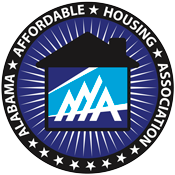As the sixth week of the session came to a close, legislators focused primarily on education, pushing several bills forward, including budgeting and the repeal of common core standards. Legislators return Tuesday to begin the last half of the 2015 Regular Session.
Senate Unanimously Passes Education Budget
With a 1% increase from the prior year, the $6 billion education budget for fiscal year 2016 quickly cleared the Senate with little debate and without a dissenting vote, 33-0. According to the Legislative Fiscal Office, the Senate version appropriates about $68 million more than fiscal year 2015. The additional money will expand the state’s voluntary prekindergarten program, buy more textbooks, hire more teachers for middle school and increase funding for transportation and daily expenses. Spending on prekindergarten would increase to about $52 million and provides for the addition of about 145 classrooms serving about 2,600 more preschoolers. Eligibility for the program would increase from 13 percent to 17 percent. Senator Trip Pittman, R-Montrose, Chairman of the Senate Education Budget Committee, stated that the budget would increase textbook spending by $13 million, from $34 to $52 per student. The budget would also provide funding for about 70 more teaching positions for middle school grades. Higher education received a 0.25 percent increase in funding. It does not include a teacher pay raise or additional money for insurance. Senators rejected Governor Robert Bentley’s proposal to shift education dollars to the struggling General Fund. The Education Budget now moves to the House of Representatives.
House Committee Favorably Reports Changes In Alabama Accountability Act
The House Education Budget Committee made two additional adjustments to an already-altered Alabama Accountability Act and moved SB 71 one step closer to full passage. The 2013 law allows individuals and corporations to donate to scholarship granting organizations (SGOs) and receive tax credits.
During this session, legislators changed the definition of low-performing schools to those in the bottom 6 percent on standardized tests but neglected to add language excluding special needs schools. Representative Terri Collins, R-Decatur, added wording that would prevent schools that serve special needs populations from being placed on the “failing” school list.
The Senate-passed bill would tighten income requirements for first-time scholarship eligibility to 185 percent of the federal poverty level or $44,123 for a family of four. Representative Phil Williams, R-Huntsville, proposed an amendment to allow those enrolled in the scholarship program to remain in it as long as their family income is less than 275 percent of the federal poverty level or about $65,000 for a family of four. Williams is concerned that low-income students who receive scholarships to attend private schools might lose their eligibility under the act if their parents’ financial situation improves. The new legislation will also require greater accounting of the scholarship money and raises the cap on tax credits from $25 million to $30 million.
The bill passed the House committee by a voice vote and now goes to the House of Representatives. It passed the Senate last month, 20-14.
Senate Committee Passes Bill to Repeal Common Core
In 2010, the State Board of Education adopted the Common Core’s national math and English benchmarks. For the past three years, there has been legislation to abolish them. Last week, by a vote of 5-3, the Senate Education Policy Committee approved a bill to do so. State Superintendent Tommy Bice says the bill would also repeal Alabama’s waiver from the No Child Left Behind Act. The legislation advances to the full Senate where final passage is in doubt. President Pro Tem Del Marsh has stated he is not receiving much support from the Senate Republican Caucus to see this legislation come up for a vote.
Legislature Passes Transportation Infrastructure Bank Bill
A bill to establish Transportation Infrastructure Bank funded by a portion of existing gasoline tax revenues and vehicle registration fees has been delivered to the Governor. The Bank would have the authority to issue bonds and provide loans or other financial assistance to government entities for certain qualified infrastructure projects.
Two-Year College Separation Bill Clears House Committee
The House Education Policy Committee reported SB 191 favorably, which will separate the two-year college system from the elected State Board of Education’s oversight and place it under an appointed Alabama Community College System board of trustees appointed by the Governor. The bill would also create a Workforce Development and Postsecondary Education Regionalization Task Force that would establish regions of the state for the governance and operation of the ACCS. SB 191 passed the Senate 27-5.
House Committee Approves Innovator-Liability Bill
Judiciary Committee members cleared SB 80, which would reject the innovator-liability theory that a manufacturer can be held liable for a product that it neither made nor sold. SB 80 is on the House calendar while its counterpart, HB 110, awaits its third reading in the Senate. According to the Business Council of Alabama, innovator liability has become important to Alabama manufacturers and economic development since 2013 and 2014 when Alabama Supreme Court rulings potentially opened up product tort actions against businesses that do not make a product.
Throughout the session, the Bob Riley and Associates team will monitor all proposed and pending legislation and maintain a presence in the Statehouse to protect our clients’ interests. Should you have any questions or concerns, please do not hesitate to call on us.
Minda Riley Campbell
Bob Riley and Associates
3530 Independence Drive
Birmingham, Alabama 35209
205-484-0099 (office)
